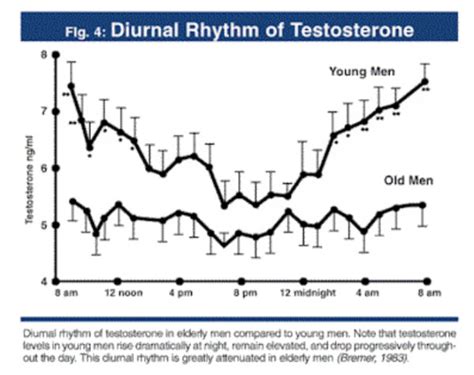Optimize natural testosterone: what diet & exercise maximize male peak performance?

Understanding Natural Testosterone and Male Performance
Testosterone, often hailed as the cornerstone of male health, plays a pivotal role far beyond just muscle mass and libido. Optimal levels of this vital hormone are crucial for maintaining energy, mood stability, cognitive function, bone density, and overall metabolic health. While pharmaceutical interventions exist, many men seek natural methods to optimize their testosterone, recognizing the profound impact diet and exercise have on this endocrine system.
Low testosterone can manifest as fatigue, reduced strength, decreased libido, and even mood disturbances, significantly impacting a man’s quality of life. The good news is that strategic adjustments to what you eat and how you move can often make a remarkable difference in your body’s natural testosterone production, leading to sustained peak performance.

The Dietary Blueprint for Testosterone Optimization
Nutrition is a foundational pillar for hormone health. Focusing on specific food groups while minimizing others can significantly influence your body’s ability to produce testosterone naturally.
Prioritize Healthy Fats
Contrary to outdated advice, healthy fats are essential for hormone production. Cholesterol, derived from dietary fats, is a precursor to testosterone. Incorporate monounsaturated and polyunsaturated fats from sources like avocados, nuts (almonds, walnuts), seeds (chia, flax), olive oil, and fatty fish (salmon, mackerel).
Adequate Protein Intake
Protein is vital for muscle repair and growth, which indirectly supports testosterone. Aim for lean protein sources such as chicken breast, turkey, lean beef, eggs, and plant-based options like lentils and beans. Ensure your protein intake is consistent throughout the day to support overall anabolic processes.

Crucial Micronutrients: Zinc, Vitamin D, and Magnesium
- Zinc: A well-known testosterone booster, zinc deficiency can lead to lower levels. Oysters, red meat, poultry, beans, and nuts are excellent sources.
- Vitamin D: Often called the “sunshine vitamin,” Vitamin D acts as a steroid hormone in the body. Research links sufficient Vitamin D levels to higher testosterone. Spend time in the sun or consider supplementation if advised by a doctor.
- Magnesium: Involved in over 300 biochemical reactions, magnesium can help free up testosterone from binding proteins, making it more bioavailable. Leafy greens, nuts, seeds, and whole grains are rich in magnesium.
Foods to Limit or Avoid
Minimize processed foods, excessive sugar, and unhealthy trans fats, as these can contribute to inflammation and insulin resistance, both of which negatively impact hormone balance. Excessive alcohol consumption can also disrupt testosterone production.

Exercise Regimens to Boost Testosterone
Beyond diet, your exercise routine plays an equally critical role in natural testosterone optimization. Certain types of physical activity are more effective than others.
Embrace Strength Training
Resistance training, especially compound movements that engage multiple large muscle groups, is incredibly effective. Exercises like squats, deadlifts, bench presses, overhead presses, and rows stimulate a significant anabolic response. Aim for heavy lifting with fewer repetitions (e.g., 6-10 reps) and proper form.
Incorporate High-Intensity Interval Training (HIIT)
Short bursts of intense exercise followed by brief recovery periods have been shown to boost testosterone more effectively than long, steady-state cardio. HIIT can involve sprinting, cycling, or bodyweight circuits. Keep sessions intense but relatively short (20-30 minutes, including warm-up and cool-down) to avoid overtraining.

Mindful Cardio and Avoiding Overtraining
While some cardio is beneficial for cardiovascular health, excessive endurance training can sometimes lead to decreased testosterone levels and increased cortisol (a stress hormone). Balance your cardio with strength training and HIIT. Crucially, avoid overtraining, which can elevate cortisol and suppress testosterone. Listen to your body and prioritize recovery.
Holistic Lifestyle for Sustained Peak Performance
While diet and exercise are paramount, other lifestyle factors significantly influence testosterone levels.
- Quality Sleep: Aim for 7-9 hours of uninterrupted sleep per night. Poor sleep drastically lowers testosterone.
- Stress Management: Chronic stress elevates cortisol, which directly competes with testosterone production. Practice mindfulness, meditation, or engage in hobbies to reduce stress.
- Maintain a Healthy Weight: Excess body fat, particularly visceral fat, can increase aromatase activity, converting testosterone into estrogen.

Conclusion
Optimizing natural testosterone is not about quick fixes but adopting a comprehensive, sustainable lifestyle. By strategically focusing on a nutrient-dense diet rich in healthy fats, quality protein, and essential micronutrients, combined with a smart exercise regimen emphasizing strength training and HIIT, you can significantly enhance your body’s natural hormone production. Coupled with adequate sleep and effective stress management, these pillars form the foundation for maximizing male peak performance, vitality, and overall well-being.









